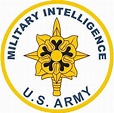If you could go anywhere in the world, where would you want to go?””
Even now, some 55 years after I was asked that question in a conference room at the U.S. Army’s Fort Holabird intelligence school, I keep wishing I had been more alert to the responses of the three or four officers in the room.
I was 22 years old. I had grown up in the Philadelphia suburbs and had never been farther south than Florida or east to the Jersey shore. New York City was the extent of my northern travels, and a senior-year-of-college recruiting visit to Procter and Gamble headquarters in Cincinnati marked my farthest adventure west. And my first airplane travel.
The answer to that question, of course, could have been anywhere. Just the word “Tahiti,” for example, had always conjured up some magical tropical paradise. China and India and other Asian locations weren’t even on the radar. Alaska? Why go someplace to freeze?
Then there was Paris. I had studied French in high school – two years of it, albeit with a Spanish teacher who was asked to fill in when the French teacher called in sick for the year. “It’s just another Romance language,” I can imagine school officials telling Senorita Blanca. “We’re sure you can keep ahead of the students.”
Though I never felt confident in French – could never speak it conversationally, but did develop a half-decent vocabulary – she did an okay job. Okay enough that I passed a college placement exam that allowed me to skip French 101 and move to a second-year level. My deficiencies were exposed the very first day in class — during roll call, in fact — when Dr. Butler, a nearly-native Army translator during the war, kept asking for “M’ssuh Aw-mawn.” It took more than a few nasalized moments for me to realize that was moi.


So I’m back in that Fort Holabird conference room, happily done with a few months of advanced individual training in what is now MOS 35L: the “Military Occupational Specialty” for a Special Agent, Army Counterintelligence. A week or so earlier, my classmates and I had completed our “dream sheets,” giving the Army two or three places where we would, if you please, prefer to be stationed for the next phase of our fledgling military careers.

“Dream” is the operative word here, because the Army truly doesn’t give a damn where you want to go. Instead, you’re going where they tell you to go, where they need you to go. A large number of the 20 or 25 graduates in the class before us, for example, were already on their way to Korea. Some to Germany, as well.
I would have been happy to go to Tampa, Florida. That was the base of operations for the guy in a nice suit who had visited me nine or 10 months earlier at my desk in the sports department of the nearby St. Petersburg Times. He was conducting a security clearance for some soldier somewhere and wanted to confirm some items on his application for “a position of trust and responsibility.” While I got the information he wanted, I learned that my civilian-clothed visitor was on active duty, fulfilling his military obligation as a Counterintelligence Special Agent, living in his own apartment “That’s the way I want to do it,” I thought to myself, well aware of the dread and danger my peers were encountering every day toting their rifles in Vietnam.
The draft was in full swing in the mid-‘60s. I was too straight and too heathy, and I knew my time was coming due. One thing led to another, and within the year I had enlisted for the Intelligence Corps (rather than be drafted), completed basic training at Fort Jackson, South Carolina, and now my training at Fort Holabird. I had learned how to type out specific reports, how to interview, how to track down “developed character references” (rather than just the references people list on their resumes), and how to use the reflections in store windows as part of a three-man team trailing “suspects” through downtown Baltimore. I was ready for Tampa. I may well have even put Peoria on my list.
I knew a little about the Army’s current global activities, but had never seen Tahiti listed as a critical duty station. And while I’ve become a little better over the years at reading body language and facial reactions, I have absolutely no memory of the immediate reaction of those officers in the room when I paused, then answered their question with a simple, “Paris.”
That’s where they were sending me no matter what I had said. In March 1966, after some additional training to prepare for what I’d be doing in Paris, I was on my way, though I wasn’t thrilled — given my still-lowly status — to be sitting in the middle of three beefy soldiers on a red-eye military flight from Maguire AFB to Orly Airport.
A part of me still believes, by the way, that that experience is still a factor in the focus I would develop on frequent flyer points and the consequent business- and first-class travel that followed.

